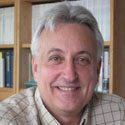Advisory Board and Editors Ecosystem Science

Ben Colman
Associate Professor of Aquatic Ecosystem Ecology at the University of Montana.
I am broadly interested in how nutrients and energy are cycled in aquatic and terrestrial ecosystems. I combine elements of ecosystem ecology, microbial ecology, and biogeochemistry in my research.

Erik E Cordes
Dr. Erik Cordes is a Professor and the Vice Chair of Biology at Temple University. He has worked on the ecology of deep-sea corals and hydrocarbon seeps for over 20 years. He studies these ecosystems at all levels of organization, from energy flow in ecosystems and patterns of community assembly, down to gene expression and microbial processes. Dr. Cordes worked on deep-sea corals for his Master’s thesis at Moss Landing Marine Labs, worked on cold-seep ecology for his Ph.D. at Penn State University, and studied the microbial communities within hydrothermal vent chimneys during his NSF Post-Doctoral Fellowship at Harvard. At Temple, his lab has continued to explore the deep Gulf of Mexico while working on the effects of the Deepwater Horizon oil spill on deep-sea coral communities and the effects of ocean acidification on the reef-forming deep-sea coral Lophelia pertusa. Ongoing investigations in the Cordes lab include the seeps and corals off the Pacific coast of Costa Rica, the deep-sea corals of the Phoenix Islands, and the various deepwater habitats of the Atlantic coast of the US.

Guilherme N Corte
Dr. Guilherme Corte is a Professor (Assistant) at the Texas A&M University College of Marine Sciences and Maritime Studies, USA. His research explores the ecology and conservation of coastal marine ecosystems, focusing on the structure of marine benthic communities, the functioning of coastal ecosystems, and the reproduction and population dynamics of marine species.

Dimitri de Araujo Costa
Dr. Dimitri Costa is a Biologist, PhD Researcher and Permanent Professor of the Post-Graduate Programme in Aquatic Ecology and Fisheries (PPGEAP), Núcleo de Ecologia Aquática e Pesca da Amazônia (NEAP), Federal University of Pará (UFPA), Belém, Pará, Brasil.
He is also affiliated with the following:
Research Group for Integrated Biological Investigation (GIBI), Centre for Advanced Biodiversity Studies (CEABIO), Federal University of Pará (UFPA), Belém, Pará, Brasil.
PhD Researcher at the Interdisciplinary Centre of Marine and Environmental Research (CIIMAR), Faculty of Sciences of the University of Porto (FCUP), Portugal.
More information about Dr Costa's professional background can be found here:
http://lattes.cnpq.br/7509693462303861
https://orcid.org/0000-0002-5399-2483

Robert Costanza
Professor of Ecological Economics, University College London, Institute for Global Prosperity, Senior Fellow, Stockholm Resilience Center, Stockholm, Sweden; Affiliate Fellow, Gund Institute for Ecological Economics, University of Vermont; deTao Master of Ecological Economics, deTao Masters Academy, Shanghai China

Joseph M Craine
Craine received his BS from The Ohio State University and his PhD from the University of California, Berkeley in 2000. He has co-authored over 100 peer-reviewed scientific publications and a book with Princeton University Press, The Resource Strategies of Wild Plants. He has worked on a variety of topics from plant traits to soil organic matter dynamics to bison performance to nutrient limitation of plant growth. Since 2014 he has helped lead a private company Jonah Ventures.

Kenneth De Baets
I am a paleobiologist. My main research focuses on reproductive strategies and macroevolution, particularly on the contributions of biotic interactions (e.g., parasitism) and abiotic factors (e.g., climate) in controlling evolutionary and diversity patterns. To this end, I work with a variety of approaches that combine research on fossil molluscs, coprolites and fieldwork with large-scale quantitative analyses. Other interests are quantitative methods to study biostratigraphy, intraspecific variability and paleobiology in general. My main taxonomic expertise is on invertebrates, mainly (extinct) cephalopod mollusks and parasitic helminths. The promotion of diversity and young scientists as well as scientific collaboration and reproducibility in paleontology are particularly close to my heart.

Natasha de Vere
Head of Conservation and Research at the National Botanic Garden of Wales and Senior Lecturer at the Institute of Biological, Environmental and Rural Sciences (IBERS) at Aberystwyth University.

Nicolas Desneux
Research Director at INRA, France. Main expertise is in the fields of Ecology, Community ecology, ecotoxicology and IPM

Lucía DeSoto
Lecturer in Botany at Complutense University of Madrid

Jocelyne DiRuggiero
Associate professor of Biology and Earth and Planetary Sciences; member of the Center for Astrophysical Sciences; co-founder and director of the Institute for Planets and Life. We use extremophiles to address fundamental questions in biology, in particular mechanisms underlying the diversity of microbial communities, their functioning, and their responses to environmental perturbations. At the molecular level, we use archaeal model systems to investigate adaptive mechanisms to environmental stresses.

Daniel Erasmus
I am an Associate Professor in the Department of Chemistry and Biochemistry at the University of Northern British Columbia. My research focuses on using molecular biology, chemical, and ecological analysis tools to characterize and understand the interactions between macro-invertebrates and fish.

